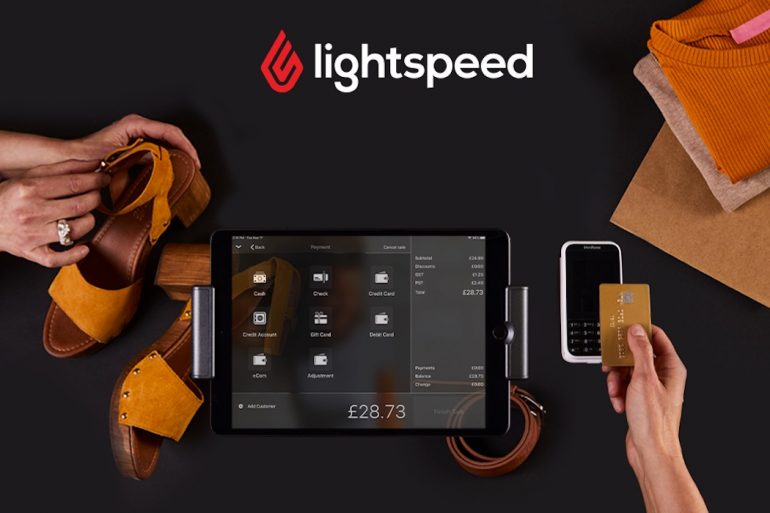During its earnings call, Lightspeed Commerce management projected a relentless optimism over merchants and restaurateurs returning from the pandemic lockdown despite reporting a fourth-quarter loss of $114 million USD ($146.1 million CAD).
Lightspeed CEO JP Chauvet told an earnings call that the company wasn’t nearly as concerned over inflation and the economy potentially plunging into a recession as it had been over the pandemic. “Any impact from a recession is nothing from what we’ve seen from COVID-19,” he said.
Lightspeed released both its fourth quarter and full-year 2022 results on Thursday, the company’s first reporting period since Chauvet took over as CEO from Lightspeed founder Dax Dasilva in February.
While its losses grew, Lightspeed posted total revenue of $146.6 million USD ($188 million CAD) in its fourth quarter, an increase of 78 percent over the same period last year. The company reported an adjusted EBITDA loss of $19.7 million USD ($25.2 million CAD).
The company brought in $548.4 million USD (748.3 million CAD) in revenues for fiscal 2022, which actually topped its revenue projection of $544 million USD ($690.5 million CAD) for the year.
However, the company’s net loss also grew for the year, showing $288.4 million USD ($396.1 million) compared to $124.3 million USD ($159 million CAD) for the previous year.
Lightspeed’s stock at presstime rose slightly following the earnings release to $29.30 CAD from a 52-week low of $19.58. However, this is down overall from a 52-week high of $165.87 on the Toronto Stock Exchange.
When it comes to low stock prices, Lightspeed is not alone. Valuations of publicly-traded tech firms have dropped significantly amid rising inflation, interest rates, and Russia-Ukraine-related tensions, which has made it more difficult for unprofitable, high-growth firms to access financing. And this has affected both the public and private markets with companies like Thinkific Labs, and Bonsai having laid off employees in recent weeks.
RELATED: Lightspeed adds global tech entrepreneurs Nathalie Gaveau and Dale Murray to its board
Despite the numbers, Chauvet remained buoyant and told the earnings call that Lightspeed is a high-growth company, and that its payments solutions will offset any slowdown.
“Consumers are once again dining out and shopping in person, filling up restaurants and stores in cities and neighbourhoods all around the world,” said Chauvet. “With the fear of further lockdowns currently abating, merchants and restaurateurs are operating in a more favourable environment where they can create new concepts, invest in technology and open new locations. This is an environment where Lightspeed will truly shine.”
The company combined its point-of-sales, payments and e-commerce technology in early May into a retail commerce platform called Lightspeed Retail. In turn, the platform uses the tech and expertise from New Zealand-based retail software startup Vend, and Californian e-commerce firm Ecwid, two companies it acquired last year for a collective $850 million USD in cash and stock.
The company also launched its Lightspeed Restaurant offering earlier in the fiscal year. In the same way as Lightspeed Retail, that platform was built on the technology of a number of acquisitions, including United States-based Upserve, Germany’s Gastrofix, Australia-based Kounta, and Switzerland’s iKentoo.
Lightspeed said Retail and Restaurant gives Lightspeed the opportunity to provide small-and-medium businesses globally with the technology to meet the growing demand as consumers return to their communities to shop and dine.
Lightspeed’s new customers in the quarter included Goldy’s Locker Room with 21 locations in Wisconsin and Minnesota; Simply 10, an Alabama based fashion and apparel retailer with 46 locations; Table, a two-star Michelin restaurant in Paris voted by Forbes magazine as one of the 10 coolest restaurants for 2021; and 1858 Caesar Bar with three locations in Toronto.
Orange, France’s largest mobile carrier, agreed to act as a distributor of the Lightspeed eCommerce solution to its SMB customers. The company’s Supplier Network Lightspeed B2B added Reebok and Eddie Bauer as customer locations.
Lightspeed’s new COO and former CFO, Brandon Nussey, told the earnings call that the company was seeing consumers shift categories from bike and garden supplies to hospitality, fashion and apparel. The shift meant a slowdown for Lightspeed in some of the new categories where it didn’t have as deep a penetration as in others.
The company is projecting revenue of $740-to-$760 million USD ($946.8 million CAD to $972.3 million CAD) in fiscal 2023, and an adjusted EBITDA loss of approximately $35-to-$40 million USD ($44.7 million CAD to $51.1 million CAD). For the first quarter of 2023, Lightspeed expects to generate revenues of $165-to-$170 million USD ($211 million CAD to $217.4 million CAD).
Lightspeed concluded that it believes it is on a natural path towards profitability. The company based that conclusion on the strong growth it said it is experiencing, the ongoing integration of the various acquisitions, the trends back towards in-person shopping and dining, and a disciplined approach to investing in the business.
Image courtesy Lightspeed.


